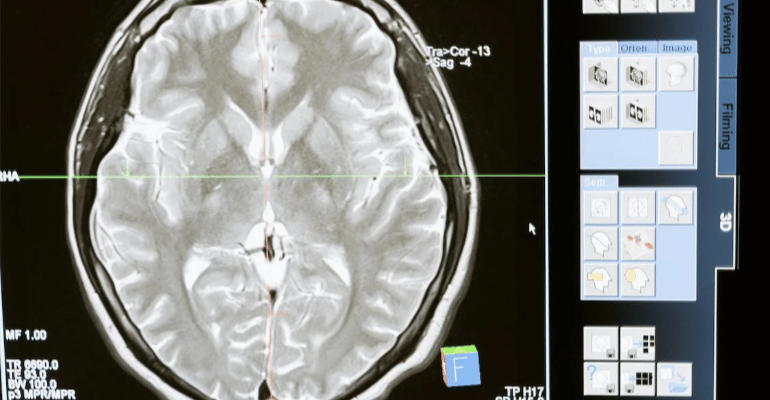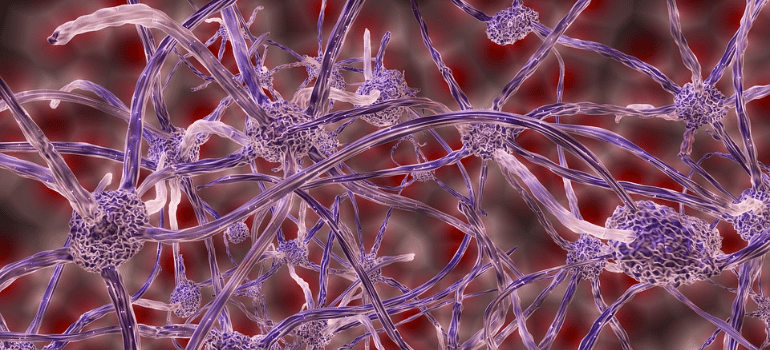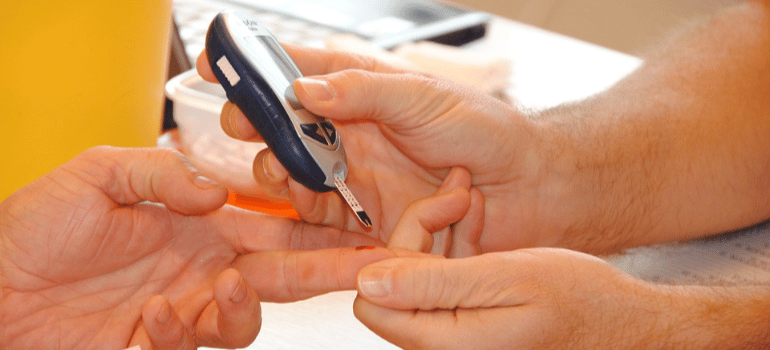Freedom from addiction is a hard journey. When one first quits a substance, withdrawal symptoms and substance cravings come as the first challenge to overcome. Even past this initial hurdle, individuals do experience cravings throughout and even after rehab. Still, these cravings are typically for the substance itself, not others. Then why do recovering alcoholics crave sugar as well as alcohol, or instead of it?
There is a simple answer to this; alcohol and sugar share a unique connection, both physical and psychological. This connection causes this essential transfer, where recovering alcoholics may substitute alcohol with sugar. Having offered services for drug and alcohol rehab in West Virginia for years, we at Harmony Ridge Recovery have seen this connection and its effects manifold. So, in this article, we’ll explore its roots, its peripheral factors, and ways to manage it effectively.
How Alcohol Addiction Functions
Initially, like all addictions, addiction to alcohol has physical, psychological, and behavioral roots. Now dubbed Alcohol Use Disorder (AUD), this type of addiction differs little from the others in these regards.
Physical Effects
First, like most addictive substances, alcohol directly affects the chemistry of the brain. Citing Marina Tsoy-Podosenin, MD, WebMD explains:
“When consumed, alcohol increases activity of GABA (Gamma-aminobutyric acid), the major inhibitory neurotransmitter in the brain, and suppresses activity of the neurons, causing slurred speech, unsteady gait, lapses in short-term memory and slowed reflexes.”
This is, of course, just the basic function of alcohol. In moderation, alcohol consumption can have minimal effects beyond the ones we all likely know; euphoria, disorientation, and so on.

However, long-term use has more, and longer-lasting if not permanent, effects, as Tsoy-Podosenin continues:
“If heavy drinking continues over a long period of time, it causes chronic changes in neurotransmitter activity and even structural abnormalities. Imaging studies done on patients with alcoholism show atrophy in the brain regions responsible for short-term and long-term memory, balance and emotions.”
Alcohol does not, in fact, kill brain cells. However, it does damage the ends of neurons, causing the aforementioned effects. In other words, like most addictive substances, alcohol creates the conditions that fuel addiction to it within the brain.
Psychological Effects
In addition, alcohol addiction comes with an array of underlying psychological effects and foundations. These tend to not be the main reason why recovering alcoholics crave sugar, as we’ll see next, but they are crucial in this discussion.
As PsychologyToday finds, “all addictions have the capacity to induce a sense of hopelessness and feelings of failure”. The same holds true for AUDs, as all forms of addiction can quickly drive the individual to compulsive use. In turn, isolation and depression often follow, creating a vicious cycle of addiction. PsychologyToday notes this as well, in no uncertain terms:
“Substance use and gambling disorders are complex conditions that affect the reward, reinforcement, motivation, and memory systems of the brain. They are characterized by impaired control over usage; social impairment, involving the disruption of everyday activities and relationships; and craving. Continuing use is typically harmful to relationships as well as to obligations at work or school.”

Behavioral Effects
Finally, alcohol addiction manifests in behavioral addiction as well. That’s not to say AUDs are behavioral addictions, as NCBI finds “there are a number of similarities as well as some differences between drug addiction and behavioral addiction diagnostic symptoms”. It is to say, however, that substance addiction also has a purely behavioral side; the habit of substance consumption in itself.
For that matter, this side of addiction also overlaps with mental health disorders, which experts dub dual diagnosis. NCBI does identify this correlation too:
“One of the precursors of behavioral addiction is the presence of psychopathologies such as depression, substance dependence or withdrawal, and social anxiety as well as a lack of social support.”
This too factors into why recovering alcoholics crave sugar, as we’ll see soon. Beyond the physical reasons, mental health disorders and eating disorders can also drastically affect sugar intake and sugar cravings.

Sugar and The Brain’s Reward System
Perhaps unsurprisingly, then, sugar fundamentally functions in similar ways. As PubMed finds, sugar consumption releases dopamine in the brain, activating its reward system. This sets the physical foundations for addiction, of course, and begins to encourage substance consumption. Even if the individual can’t consciously feel it, their brain does.
So, in the context of alcohol addiction, recovering alcoholics tend to subconsciously turn to “rewarding” substances like sugar. As withdrawal symptoms from alcohol abstinence come into effect, the brain seeks euphoria elsewhere. In some ways, this may seem like a coping mechanism, but in many regards, it can simply be an addiction transfer.
So Can Sugar Be Addictive?
Before continuing then, yes – sugar addiction can occur. NCBI makes a strong case for this, as we can briefly explore here to give more context to why recovering alcoholics crave sugar.
As they explain, sugar initially meets 5 of the DSM-5’s 11 SUD criteria:
- Using more of a substance than intended or using it for longer than intended.
- Trying to cut down or stop using the substance but being unable to.
- Experiencing intense cravings or urges to use the substance.
- Needing more of the substance to get the desired effect .
- Developing withdrawal symptoms when not using the substance.
- Spending more time getting and using drugs and recovering from substance use.
- Neglecting responsibilities at home, work or school because of substance use.
- Continuing to use even when it causes relationship problems.
- Giving up important or desirable social and recreational activities due to substance use.
- Using substances in risky settings that put the individual in danger.
- Continuing to use despite the substance causing physical and mental health problems.
The animal model’s limitations do come into effect here, of course. Nonetheless, as they continue to assert, research so far confirms that we can indeed identify addictive qualities in sugar.

The Connection Between Alcohol And Sugar
Up until this point we have established how alcohol addiction functions and how sugar consumption can drive addiction. But what do these two substances have in common? Rather, what connects them so strongly that most other addictions don’t have?
Down to their basics, the two do share a connection that explains why recovering alcoholics crave sugar. That is, blood sugar.
Many alcoholic beverages and drinks contain moderate to high amounts of carbohydrates, which consist of simple sugars (ie sucrose and fructose) and complex carbohydrates. As such, high-sugar foods and alcohol consumption have a similar effect on blood sugar. In turn, they have the same effects on the brain and the individual’s psychology, cementing their connection.
Exploring Why Recovering Alcoholics Crave Sugar
Within this context, it should now be easy to see how the two are related. However, let us briefly break the connection down into individual parts.
Blood Sugar Spikes
First, alcohol itself contains sugars. In addition, alcohol prevents the liver from releasing glucose. The latter factor explains, in part, why heavy drinkers are much more susceptible to hypoglycemia.
As such, stopping alcohol consumption has two distinct effects. First, it reduces blood sugar, causing the body to seek sugar from other sources. Second, exactly because the body has gotten used to receiving sugar instead of producing glucose, it amplifies sugar cravings. This is exactly why Alcoholics Anonymous actually suggested consuming sweets to help manage alcohol cravings; it’s an effective substitute.

Mental Health Disorders and Addiction Transfer
Second, as outlined above, SUDs and AUD specifically can often overlap with mental health disorders like:
- Anxiety
- Bipolar disorder
- Depression
- Eating disorders
- Personality disorders and borderline personality disorders
- Schizophrenia
- Trauma
- Autism
- OCD
- ADHD
- PTSD
This is actually unfortunately common, even more so for AUD. NIDA finds that 37.9% of adults with SUDs also have mental illnesses, and that 18.2% of adults with a mental illness also have an SUD.
Why this matters is, simply, that such cases are particularly prone to addiction transfer. As recovering alcoholics crave sugar, and especially if they’re facing severe psychological symptoms, they may turn to sugar to cope. But, having established that sugar addiction can indeed occur, this can simply lead to one addiction being replaced with another.
Eating Disorders
Finally, another element of this connection is the general prevalence of eating disorders as a product or cause of addiction. Indeed, NEDA finds a very considerable overlap between SUDs and eating disorders:
“Up to 50% of individuals with eating disorders use alcohol or illicit drugs, a rate five times higher than the general population. Up to 35% of individuals who were dependent on alcohol or other drugs have also had eating disorders, a rate 11 times greater than the general population.”
This element warrants attention from addiction treatment providers. Eating disorders themselves can overlap with mental health disorders, making journeys to recovery particularly difficult. Even in cases where they don’t, eating disorders by themselves can significantly inhibit rehabilitation. In this specific exploration’s context, an eating disorder can exacerbate sugar cravings beyond alcohol abstinence itself, discomforting the individual immensely.

Managing Sugar Cravings
Nonetheless, managing sugar cravings is by no means impossible. Addiction treatment needs to account for such hardships and can often tackle them effectively. In brief, there are three main ways to do so, each with its own subsections.
Receiving Therapy That Can Help Alleviate Sugar Cravings
First, it may sometimes be that recovering alcoholics crave sugar due to eating disorders. In these cases, Verywellmind finds psychotherapy an effective tool:
“Ultimately, the “medication” of choice for an eating disorder is food and normal eating as well as finding a way to cope with the unhelpful or distorted thoughts surrounding food, eating, and body image.”
But even in cases of expected sugar cravings, fueled entirely by alcohol withdrawal, psychotherapy tends to be the ideal tool. What has to differ is exactly where such therapies focus, but their merit remains the same.
The four main types of psychotherapy for this purpose, and addiction treatment in general, include:
- Cognitive Behavioral Therapy (CBT)
- Dialectic Behavior Therapy (DBT)
- Rational Emotive Behavior Therapy (REBT)
- Eye-Movement Desensitization and Reprocessing (EMDR)
If you’re seeking AUD treatment for yourself or a loved one, noting which treatment providers offer these therapies is advisable. Sugar cravings are extremely common, and can play a crucial role in recovery – as outlined above.

Completing Personalized Rehab Programs
For that matter, as we’ve also noted above, there are many different elements in play as regards sugar cravings. Therefore, as each case differs from the next, a personalized rehab program can only help ensure a successful recovery. There is no one-size-fits-all approach to addiction treatment, as we’ve highlighted many times in the past.
In this context, as recovering alcoholics crave sugar quite often, any of the following qualities and offerings should help:
- Thorough case management. Especially in the early stages of detox, clinical supervision and counseling are universally beneficial. Here, having treatment providers focus on the causes of sugar cravings and assisting in managing them can help tremendously.
- Holistic addiction therapy. Such outlooks on rehab can champion the “mind-body meld”, helping the mind heal alongside the body through yoga and other spiritually uplifting activities. In addition, holistic therapy typically values nutritional guidance, which can similarly be of great help with sugar cravings.
- A robust aftercare program. Finally, extensive and thorough aftercare programs have demonstrable benefits in helping prevent relapse. In this specific context, they will also help the individual maintain a proper nutritional plan and manage cravings.

Maintaining A Proper Diet During and After Rehab
Finally, a robust aftercare program can indeed include nutritional guidance and set the individual on course. However, it is important to maintain proper nutrition throughout and after rehab, so as to ensure a successful recovery.
Toward this end, dieticians and psychotherapists should collaborate throughout the process to both educate the individual and help them maintain their acquired skills after rehab. This includes proper nutrition and self-reliance, as well as a healthy overall lifestyle to stabilize the body and mind. Exact nutritional advice will of course vary, as diets should be personalized as well, but the universal fundamentals of proper nutrition include:
- Remaining hydrated at all times, while avoiding sweet drinks and coffee
- Maintaining a consistent sleep schedule, and sleeping for roughly 8 hours a day
- Maintaining a proper, consistent meal schedule
- Balancing one’s diet with protein, carbohydrates, and fiber
- Receiving proper amounts of sugars from natural, unprocessed sweets

Do Other SUDs Also Fuel Sugar Cravings?
Before concluding, here we should also cover a common question. Recovering alcoholics crave sugar for specific reasons, as we’ve covered – but do other SUDs cause sugar cravings too?
There are indeed many SUDs to be mindful of, and many can overlap with AUD as ResearchGate data finds. These can include:
- Cocaine addiction
- Stimulants addiction
- Heroin addiction
- Marijuana addiction
- Opiate addiction
- Meth addiction
- Fentanyl addiction
- Ambien addiction
- Barbiturates addiction
- Benzodiazepine addiction
Some of them, like marijuana addiction, can specifically affect appetite. Others, like addiction to prescription sedatives, can impact one’s sleep schedule and begin to spiral into eating disorders. Still, no SUDs cause sugar cravings the way alcohol addiction does. Most addictive substances don’t share the connection alcohol has with sugar, so sugar cravings tend to surface only for AUDs.
That said, addiction might co-occur with other conditions that affect appetite. An SUD might co-occur with an AUD, or another mental health disorder that brings about sugar cravings. That is to say, sugar cravings may be present for other reasons as well – but typically accompany alcohol addiction. Therefore, it’s always best to consult your treatment providers about it so they can inform you on what to expect.

Maintaining Healthy Eating Habits In Rehab and Beyond
As you can see, the unique connection between alcohol and sugar cannot be underestimated. It is deeply rooted in both substances, and largely explains just why recovering alcoholics crave sugar. Moreover, it can cause complications throughout and after recovery, especially if it overlaps with eating disorders or mental health disorders.
Therefore, it is vital that addiction treatment providers understand this connection and take decisive, calculated steps toward addressing it. From personalized behavioral therapy to nutritional guidance and robust aftercare, sugar cravings can be managed effectively, ensuring a successful recovery.
If you would like to know more about this subject or addiction in general, or are looking for alcohol addiction treatment services for you or a loved one, we at Harmony Ridge Recovery are at your disposal. Please, feel free to contact us today and let our teams know how we can best help you defeat addiction.



